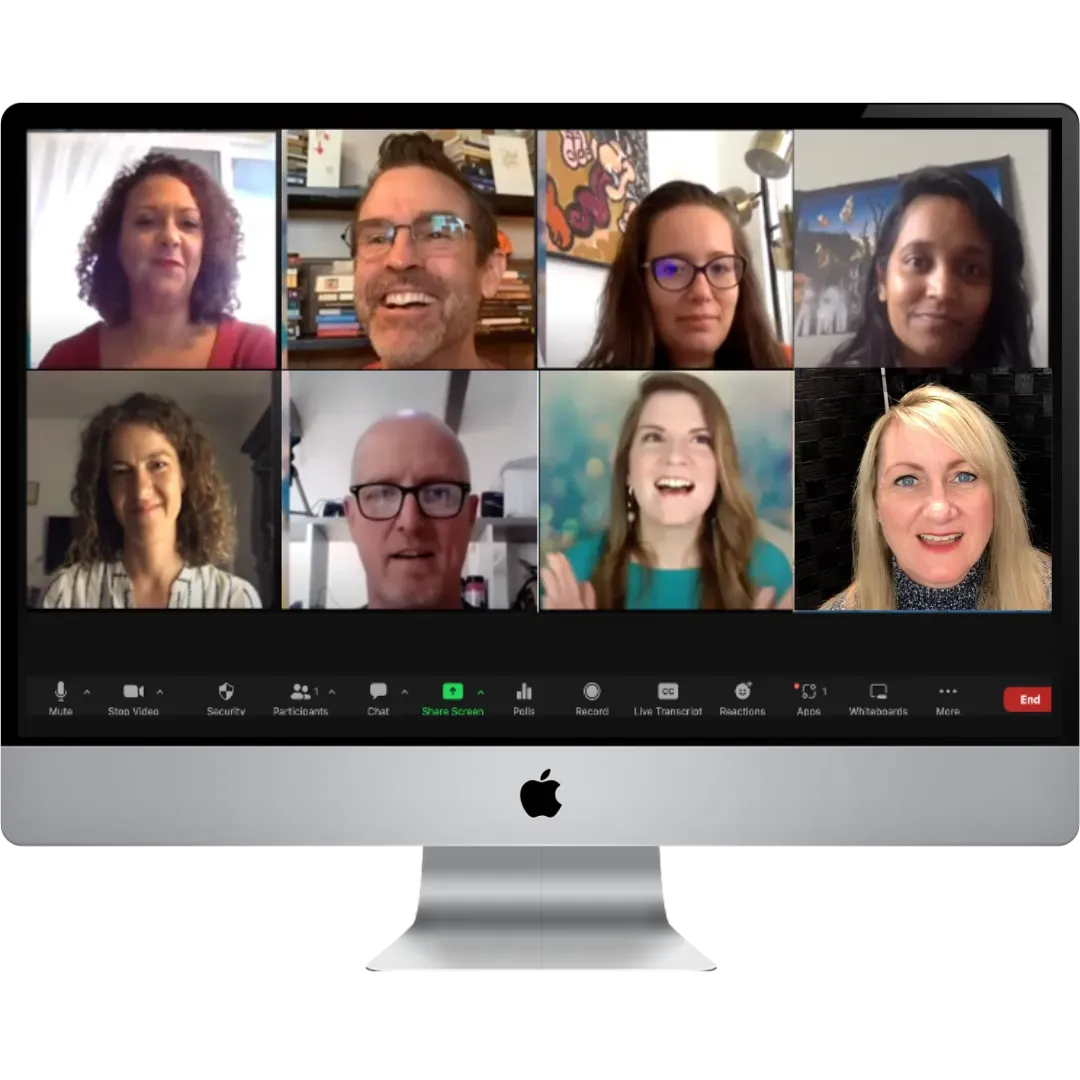
Continuing Education with Briana MacWilliam Inc.
The following workshop is available for continuing education contact hours for Licensed Creative Arts Therapists (LCATs) and Licensed Mental Health Counselors (LMHCs) in New York State.
YOU'RE EARLY!!
and we are SO excited for the VIP training too!
Bookmark this page and refresh before our live session on April 22nd at 11 am CT!
Be sure to download Zoom to ensure you're able to join on time! You will not need a Zoom account to join.

We'll see you soon!
WE ARE LIVE!!!
*Use the link below to join our live session at 11AM CT!!
We'll see you soon!
Introducing the:

Business Model
Watch the replay of the exclusive private training and Q&A below before it expires!

OPENING THE HEART CHAKRA TO HEAL ANXIOUS-AVOIDANT RELATIONSHIPS
Saturday, December 2nd, from 3-5pm, on Zoom.
This workshop is worth 3 LIVE continuing education contact hours .

Workshop Description
Discover the transformative power of blending energy healing with psychological insights in our upcoming workshop, "Opening The Heart Chakra to Heal Anxious-Avoidant Relationships." This unique session delves into the dynamic interplay between the Heart Chakra and anxious-avoidant attachment styles. By combining an understanding of practical psychology, with a spiritual approach to guided visualization, attendees will acquire actionable tools for fostering more secure, fulfilling relationships for their clients. Don't miss this opportunity to expand your therapeutic toolkit and make a lasting impact.
This Workshop Includes
An overview of attachment styles and how they impact relationships, including the signs of anxious-avoidant relationships, and the unique growth challenges for each attachment style.
An exploration of the heart chakra as a framework for applying energy healing to emotional healing.
A brief overview of The MacWilliam Method™, and the distinctions between attachment security and Soul-Centered Security™.
A recorded demo session with Lonnie, a woman with anxious attachment who was struggling to let go of a previous anxious-avoidant relationship, in which there was infidelity.
An interactive experiential directive and guided visualization activity to connect to your own heart and glean wisdoms for emotional healing.
Delivery Format
LIVE ONLINE
Your Workshop Objectives
You will be able to identify six signs of anxious-avoidant relationships.
You will be able to recognize the differences between Soul-Centered Security™ and attachment security.
You will be able to implement one guided visualization to help clients relax and connect to their bodies.
Recognizing Anxious-Avoidant Dynamics: Why This Workshop is Essential for Therapists
If you've encountered clients stuck in a push-pull dynamic where one partner seeks closeness while the other retreats, you're witnessing an anxious-avoidant relationship in action. These dynamics often lead to cycles of emotional highs and lows, leaving both partners feeling unfulfilled and emotionally drained. Here's how to spot it in your client's experience:
Inconsistent Communication: One partner is overly communicative and expressive, while the other is reserved or even aloof.
Emotional Rollercoaster: The relationship has frequent ups and downs, oscillating between intimacy and distance.
Conflict Avoidance or Escalation: Minor disagreements often turn into significant issues because one partner avoids conflict, while the other may escalate it.
Attachment Anxiety: One partner constantly seeks validation and assurance, manifesting clingy behavior.
Emotional Unavailability: Despite being in a relationship, one partner maintains a level of emotional detachment, often avoiding deeper emotional commitments.
Perpetual Blame Game: Partners consistently blame each other for the relationship's issues, indicating an inability to take individual responsibility.

If your client is an Avoidant Rolling Stone, they might...
As a therapist, they might make you feel like you're walking on eggshells in the session, because it's unsafe to talk directly about feelings or the nature of their relationships.
They might express exuberance for the therapeutic process in one session, and then disappear without explanation, or behave passive aggressively in the next session.
They might minimize the insights and emotional gains they've made in therapy, and leave you feeling ineffectual and unacknowledged.
They may suck you into intellectual "tete-a-tete" scenarios, as if competing with you for control in a session by "outwitting" you, or icing you out.

If your client is an Anxious Open Heart, they might...
They might interpret most situations in the negative, assuming more blame than is their due, so you spend a lot of session time reassuring them, instead of exploring the real underlying issues.
As a therapist, they may inspire a sense of urgency and performance anxiety, as they look to you to "fix" them with some ultimate solution.
They may assume the role of the "good client" and express "ah ha" moments and insights that they can tell you want them to have, but that they don't really feel, masking their real underlying needs.
They praise you as a therapist and seductively invite you to loosen your boundaries or adopt an air of familiarity that feels like a gray area, or borderline inappropriate.
SCROLL BELOW TO SIGN UP FOR REMINDERS AND RECEIVE THE ZOOM LINK TO JOIN.


Your Workshop Presenter
Briana MacWilliam is a licensed art therapist and published author with specialized certifications in Reiki energy healing, Emotional Freedom Technique (EFT Tapping), Hypnotherapy, and Trauma-Informed Somatic Therapy. As a relationship coach, she employs a psycho-spiritual approach to help high-achieving, spiritually-oriented professional women navigate the complexities of insecure attachment styles in relationships.
The founder of The MacWilliam Method™, Briana seamlessly blends psychological insight with spiritual wisdom to reorient her clients' attachment security towards a resilient, internally-focused spiritual center, achieving Soul-Centered Security™ . Known for her captivating presence across individual sessions, group workshops, and speaking engagements, she is a transformative guide on the path to self-acceptance and unconditional love.
Workshop Fee
This workshop is FREE for anyone to attend.
If you would like to obtain continuing education contact hours as an LCAT or LMHC, there will be a link provided at the end of the live session to complete the necessary learning assessments and instructor evaluation.
The cost of the certificate is $97.
SIGN UP FOR REMINDERS AND RECEIVE THE ZOOM LINK TO JOIN.
Praise For A Psychospiritual Approach
"IT WAS A GATEWAY TO UNDERSTANDING."
What Laura sought wasn't just a quick fix; she craved a deep, meaningful connection with her truest self. Yet, despite her knowledge, she was caught in a cycle of anxiety-driven attachment that felt impossible to break. That is, until she discovered my method. We moved beyond the surface, grounding her so profoundly that she could finally hear—and trust—her own inner wisdom.
She shares, "I learned a lot about myself, and the guided imagery became a portal into a new understanding of who I am. The lessons I was grappling with found permanent roots inside me, thanks to the meditation and visioning exercises."
ENTER YOUR INFORMATION TO JOIN THE WORKSHOP AND RECEIVE UPDATES.
APPROVED PROVIDER INFORMATION
Briana MacWilliam, Inc. is recognized by the New York State Education Department’s State Board for Mental Health Practitioners as an approved provider of continuing education for licensed creative arts therapists; #CAT-0014, and is also an approved provider of continuing education for licensed mental health counselors; #MHC-0224.
PLEASE NOTE:
While some subject areas overlap in education, a course that includes art therapy directives does not qualify a counselor to practice art therapy, and similarly an art therapist is not qualified to practice as a counselor, without proper licensing. For questions, contact support@brianamacwilliam.com.